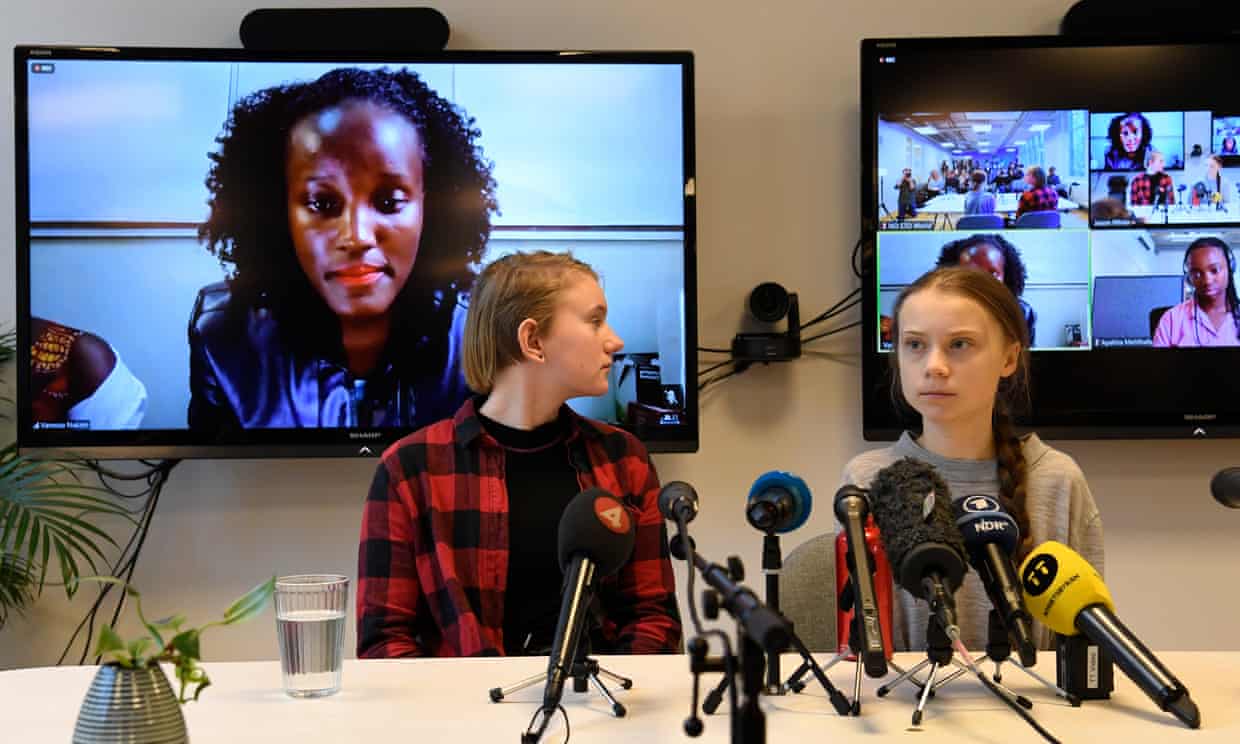
Environmental activism
Cropped-out climate activist Vanessa Nakate urges media to hear Africans
Ugandan activist says she hopes storm over Davos photo will help shift narrative
by Jessica MurrayThe Ugandan climate activist who was cropped out of a press photo in Davos has said many African activists experience the same erasure but feel unable to speak up.
The Associated Press apologised last week after it cropped Vanessa Nakate out of a photo she had posed for alongside fellow activists Greta Thunberg, Loukina Tille, Luisa Neubauer and Isabelle Axelsson.
At a Fridays For Future press conference in Stockholm on Friday, the 23-year-old said: “This is something that has been going on for a long while and African activists are trying so hard to be heard. It gets so frustrating when no one really cares.”
She said she had received messages from other activists who had experienced similar things but were too scared to speak out or who did not receive much attention when they did.
“It’s really sad that the incident happened,” she said. “But when I look at it in a more positive way, it has actually made the world set their eyes on the activists in Africa and try as much as possible to listen to their stories. So I’m actually very optimistic about this and I believe that it is going to change the stories of different climate activists in Africa.”
Nakate joined the press conference by videolink along with other African climate activists.
Thunberg said at the event: “It’s quite obvious I get a certain kind of media attention. If I say something, it turns into a headline. Of course, that is not the case for pretty much all other climate activists, especially from the global south, unfortunately.”
Speaking of what happened to Nakate at Davos, Thunberg said: “Since Vanessa is my friend, it was very hard to see what she had to experience there, and we tried to support each other through that.”
Makenna Muigai, an activist from Nairobi, Kenya, told the press conference: “Africa at large is being affected by the negative impacts of climate change. A great example is the locust infestation in east Africa, which will soon lead to food insecurity. The sad thing is, lots of people from western countries are unaware as to why this is happening.”
Ndoni Mcunu, a climate scientist from the Global Change Institute at the University of the Witwatersrand in South Africa, highlighted how the continent was already feeling the impact of the climate crisis.
“Due to drought and other effects of climate change, we have seen almost 52 million people become food insecure in our continent,” she said. “How is it that we’re not being spotlighted in stories? That’s the main challenge we have as a continent. It is said that Africa only contributes 5% of the global greenhouse gas emissions, yet we are the most impacted.”